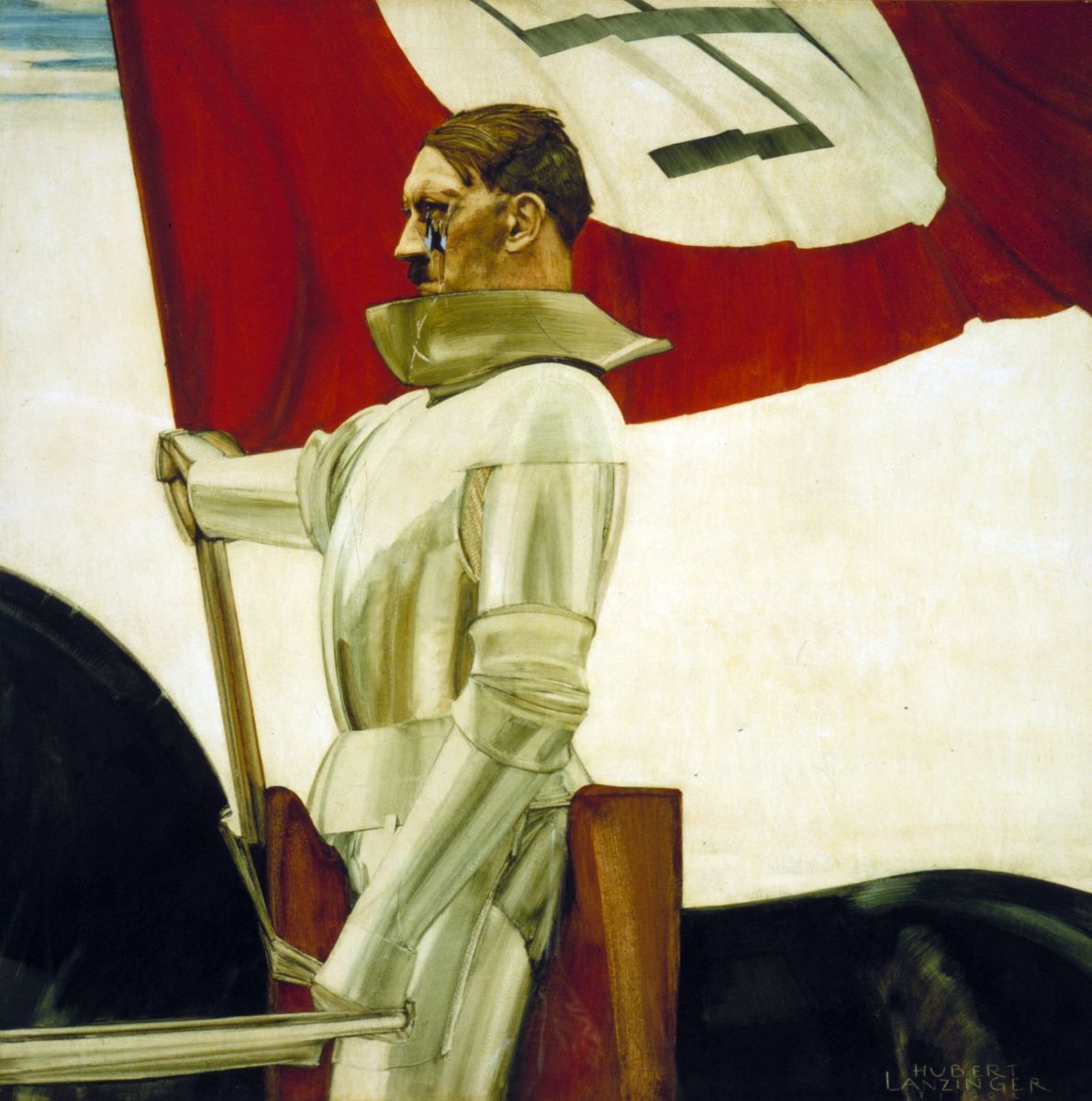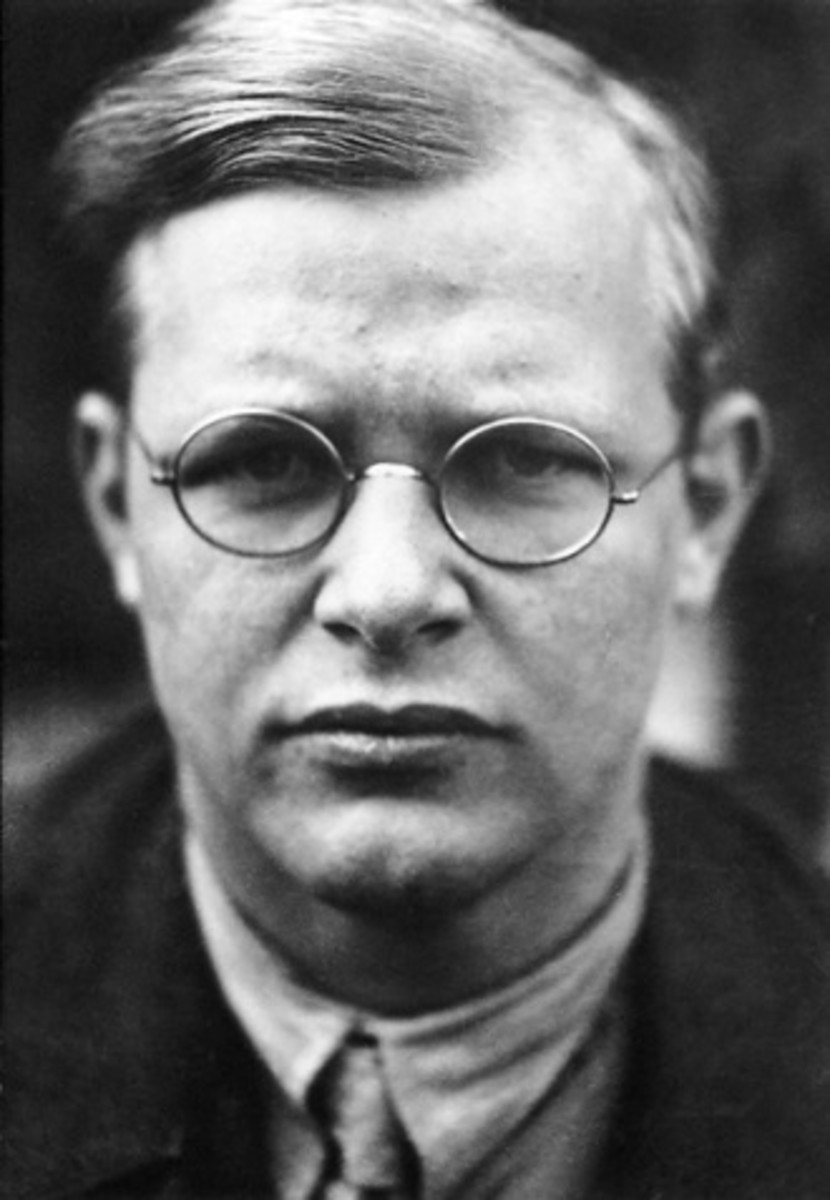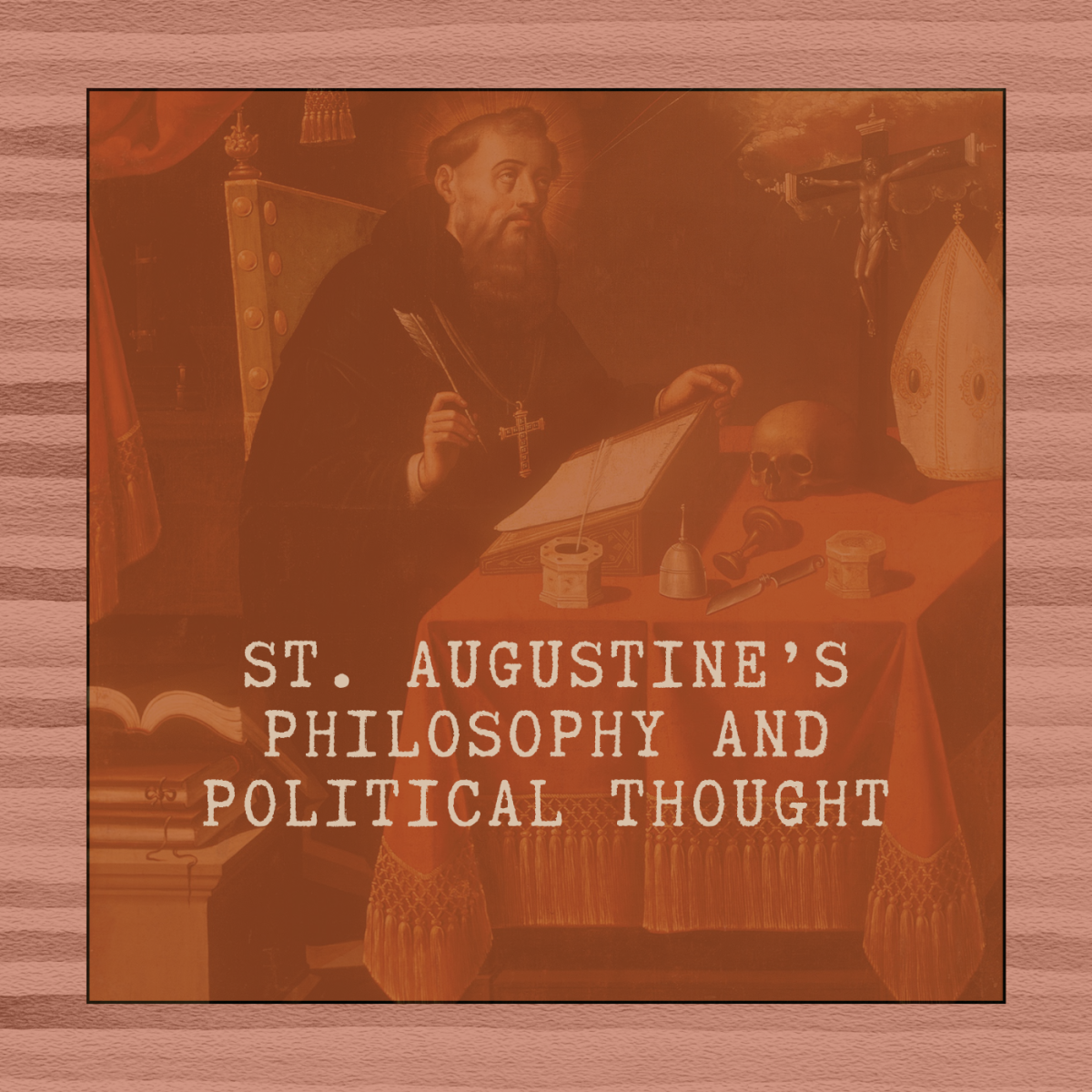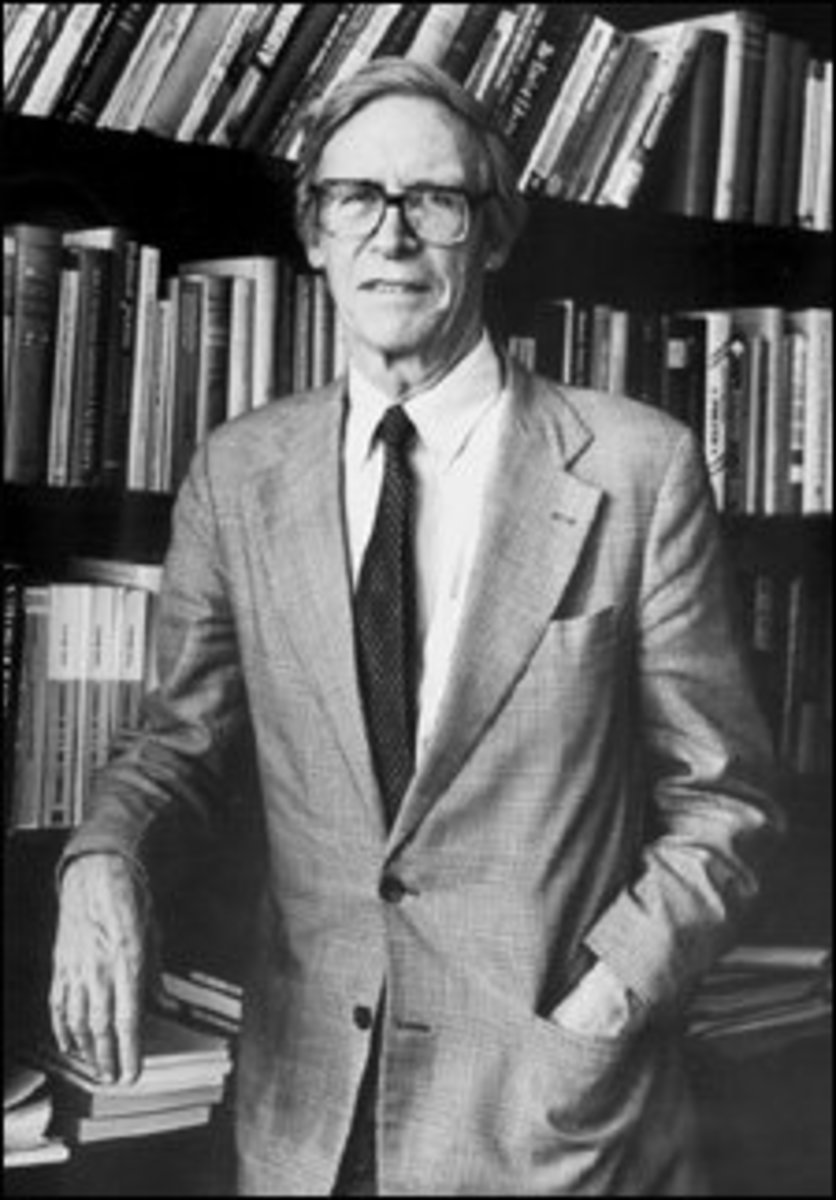Who is Hitler's Legacy? From Volkisch to the Occult Art, A Darwin Following & Racism Traced
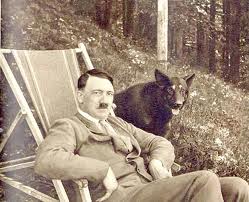
A Look at the Legacy of Nationalism and Racism
In his book, Unholy Alliance: a History of Nazi Involvement with the Occult, Peter Levenda outlined many mystical links between Hitler and the Third Reich and occultism, specifically, Nordic Paganism and Satanism. Levenda was able to trace the racial theories of Madame Helena Petrovna Blavatsky in the late Nineteenth Century through Hitler to the Twenty-First Century. Levenda, therefore, provided an obvious link to the increase of racial division today and so, at first glance, one would assume that Levenda was implying that all occultists are racists, and that this particular racism has had an impact on today’s society. However, racism is only a by-product of an overall belief system that all occultists have; that is, a link to the land and people from which they identify. This does not necessarily have to involve one particular race, but a commonality among a particular group of people.
A second glance at Unholy Alliance may give one the impression that perhaps occultists used racism to gain power over their environment and other people for the benefit of themselves and their best interests. Levenda laid out an argument that occultists used Hitler to gain that power and likewise, Hitler used occultism to gain the same power. Power is something that all people at some time in their lives desire and many seek to obtain, using many methods to obtain it. The occult is really only one method to gain power.
When one inspects Unholy Alliance more deeply, one discovers that the link between occultism and Hitler and the legacy left by each is neither racism nor power, but that it is the phenomena Levenda described as Volkisch, the German word for the identification of a people with another people based on some commonality. This commonality until 1875 was through land and perhaps social status. Volkisch comes in many forms, including nationalism. However, for the German occultists and subsequently, Hitler, it came in the form of race.
According to Levenda, Western twentieth century occultism began with the Theosophical Society in New York City in 1875, which resulted in an occult revival that spread to England and the Continent with both powerful and many times dire consequences.[1] After beginning the Theosophical Society, Madame Helena Petrovna Blavatsky outlined an evolution that included vanished races through the present imperfect race of humans and continued the pattern into the future. Levenda did not say what exactly Blavatsky’s motives were for creating this theory, which could lead the reader to believe that Blavatsky was a brilliant opportunist. Religious beliefs of the middle class of both Europe and America had been thrown into turmoil as a result of Darwin’s publications of The Origin of Species and The Descent of Man. Both of these books offered evolutionary alternatives to the popular understanding of the Biblical account of the origin of mankind found in Genesis. The separation of science and religion became even more pronounced than perhaps during the Enlightenment period and people began to question God’s very existence. “They found themselves spiritually – and, perhaps, morally – adrift.”[2]
In her book, The Secret Doctrine, 1888, Blavatsky provided an alternative to Darwin, by scientifically justifying a superior race. This allowed intelligent and educated people to maintain their deep spirituality while at the same time accepting scientific research being presented. It is unclear in Unholy Alliance exactly how these intelligent and educated people were able to maintain both a superior race science and Biblical principles, but it could possibly have been simply because of how scripture was interpreted at the time or it could have coincided with the Biblical principal of the New Man, wherein after accepting Jesus as the son of God and becoming a Christian, one is placed apart from others in this world. While this latter concept does not lead into German occult or Hitler beliefs, it does lead to popular beliefs of elitism in European and American Christianity today, possibly influenced at least in part, by Hitler.
The concepts of The Secret Doctrine were later incorporated into the beliefs of German occultists.[3] With Blavatsky’s popularization of the spiritual struggle between races and the inherent superiority of the “Aryan” race, German occultists were able to take this struggle to its natural conclusion.[4] That is, that there is a very real physical and spiritual fight between races and, that it is, the duty of the occultist to not only participate in the fight, but to win the war. This is the natural state and keeps the evolutionary process on track. It is important to keep in mind that Blavatsky was simply popularizing a mindset that already existed which was the caste system of races, adding the importance of runes and the claim that the Aryan race is superior in her theory.[5]
The German occultists, as most occultists, did not believe that democracy, science, technology, the Industrial Revolution and capitalism concurred with their beliefs of the Gods, the earth, and saw science as lacking in human warmth and cold indifference to the gods.[6] In other words, those modern sciences and ideologies left out the human interaction with nature and as part of nature. It set humans apart and this was seen as a Jewish phenomenon. Basically, German occultists were re-hashing an age-old argument that science and religion do not mix.
Forward to the defeat of Germany in World War One: the Allies are demanding undue hardships from the German people and the Russian Revolution is in process. Kurt Eisner, an intellectual and a Jew, proclaims a Socialist Republic in Munich on November 7, 1918.[7] German Nationalists are losing not only the cohesiveness of their homeland and families, but their way of life. Within forty-eight hours of Eisner’s proclamation, The Thule Gesellschaft meets to plea to cultists for an armed resistance against the “Reds”.[8] This plea of Baron Rudolf von Sebottendorff degenerates into a speech on runes, German racial theory, and Nordic mythology. Levenda wrote that the Thule Gesellschaft was a cover to confuse Munich’s Red Army which was looking out for right-wing extremists and that Sebottendorff was Master of the anti-Semitic Germanenorden’s Bavarian division. It is not far-fetched for these occultists to pick up arms against the enemy. The more ancient Nordic paganism is filled with stories of war and in fact, war was the basis for that paganism. Taking this with the tale of an ancient Teutonic Empire, using Runes as the commonality, German people are then afforded justification for their right to bear arms against all.[9] However, it is unclear without further research if the ancient Nordic paganism would have included any racism or was simply based on a form of Volkisch of ancient times. But it is clear in studying twentieth century occultism, as Levenda pointed out, “In this century, in Europe, racism had its roots in occultism.” Racism is, after all, an expression of irrational fears…and the irrational often finds a home in the milieu of primordial, preconscious archetypes that is the environment of both religion and occultism. Racism and the occult were often found sharing the same magic circles in the early days of this century, and therewith hangs a tale.”[10]
Using an ancient superiority of the Aryan race, created through the linguistically and godly nature of runes, the Aryans were called a Chosen people and the Jews, from whence Christians came, were from the demon Jehovah.[11] The fact that a demon named Jehovah plays no role in ancient Nordic paganism seems to have been irrelevant to the German occultists. “Through inbreeding, neglect, and ruthless suppression by the Christian authorities” the Aryans had lost their magical powers and their position as the Chosen People and must regain it.
The Pan-German movement attempted to form unified fronts among individual nations for economic and political purposes.[12] The Pan-German Volkisch movement created the Nazi Party, who wanted to resurrect the genuine Teutonic orders of knighthood and priesthood.[13] The Jewish-Masonic conspiracy, including Communism, Capitalism and Democracy, is in opposition to the pagan movement, which is also anti-Christian.[14] It is important to note that Levenda did not include the modern Wicca phenomenon in that opposition; however, that could be argued successfully, as modern Wiccans have a basic Volkisch belief system, though hidden under many different names, depending on the tradition. It is based on common heritage, albeit, many times adopted.
Levenda pointed out that Communism, is in opposition to all religions, while Nazism supported a pagan revival to replace existing religions.[15] Politics is one tool used by religion or attempts to alleviate religion. Levenda identified these as “Nazism in various forms” which continue to influence young and old people even today.[16] It is pointed out that Volkisch theorists were not developing some new ideology, but that these ideologies existed in various parts of the world at various times.[17] It makes sense that these would continue today. However, the Nazi ideology of Volkisch continues to exist in the form of Nazism in Chili and other parts of South America as well as in the United States. It is too early to see if this trend will last. While forms of Nazism do exist today and may eventually evolve into other ideologies in the distant future, Nazism is the latest and the most effective in a line of Volkisch-type ideologies and it is too soon to say how long its influence will last. There is no question that Nationalism continues to be held in high regard throughout the world.
Hitler, using the circumstances of his nation and the world, economically and spiritually, adopted occultism as one tool to gain power and control. He more than likely believed in the method he chose, the eradication of anyone not of the Aryan race, so to claim that his motives were simply to gain power and control would be to misjudge Hitler’s significance on the state of the world then as well as today. It is also difficult to claim that Hitler had the kind of power and control to brainwash so many other Germans to believe the same as he did. Perhaps he could have forced them into compliance, but there is significant evidence that many German people believed in what they were doing and that Volkisch, by race, was a form of self-preservation for the German people.
Today’s increase of racism itself cannot be directly traced to Hitler. But that is not what Levenda was claiming. He claimed a division of races – he claimed that Volkisch taken to its extreme, race, is the problem today. It is Hitler’s legacy. It is the occult’s agenda. It is a Christian agenda, Muslim agenda and so forth. It is also a political agenda that transcends race, religion and land. It is a matter of finding commonalities and using them to the benefit of self, which is what the Catholic Church did during World War II and what groups like the Ku Klux Klan and Neo-Nazis do today. It could be argued that Volkisch is what companies like Nike and Nestle promote in their quest to develop a world in which using their products binds us together as one against some evil enemy. Volkisch describes what politicians use during election year and why we spend billions of dollars for our personal favorite college teams. You know, “Go Purple.”
Levenda asserted that races have become even more divided since the Third Reich was in power and that the potential for racial violence around the world has “escalated to heights unheard of thirty, forty years ago”.[18] As far as race and Volkisch, Levenda is correct. However, there are other forms of Volkisch – corporate, political, religious, race, geographic allegiances that people identify with and are willing to die for. Perhaps, Volkisch is a belief system that occultists have always held to, that Hitler adopted and lived, and that continues today, engrained in the psyche of everyone.
Levenda reviewed many SS documents, diaries, reports and publications and he wrote that he became numb with a mystifying sense of horror at himself. He saw in those pages the bureaucratic Beast, likening it to any large corporation. He stated, “I recognized the kinds of people who kept those files: I recognized their concerns, their anxieties, their hopes, their fears. I began to identify with the authors and recipients of those letters, the keepers of those files, the meticulous fillers of those forms.”[19] In essence, Levenda recognized himself. Levenda contemplates “rejected knowledge” as he realized that while the men of Ahneenerbe-SS filled out forms, wrote letters, filed reports, millions of human beings were being tortured and killed in horrible, unbelievable ways by their coworkers.” The full reality of this was looking at microfilm screen as “if it were a mirror into the past, and watched people like me make casual, passing references to the death camps.”[20]
One of the most striking comments that Levenda made is actually a rhetorical question: “But Hitler as tool of other cultists?”[21] This leaves a reader dumbfounded as that small yet significant question is asked. The implication is that there is something in this world that is more evil than Hitler. What is worse is that this something still exists, perhaps in all of us.
[1] Peter Levenda, Unholy Alliance: A History of Nazi Involvement with the Occult (New York: The Continuum International Publishing Group Inc., Second Ed., 2001, p. 38); [2] Ibid., p. 39; [3] Ibid.; [4] Ibid., p. 40; [5] Ibid.; [6] Ibid.; [7] Ibid., p. 32; [8] Ibid., p. 33; [9] Ibid., p. 49; [10] Ibid., p. 47; [11] Ibid., p. 53; [12] Ibid., p. 49; [13] Ibid., p. 57; [14] Ibid., p. 59; [15] Ibid., p. 60; [16] Ibid.; [17] Ibid., p. 66; [18] Ibid., p. 31; [19] Ibid., p. 171; [20] Ibid.; [21] Ibid., p. 81.



